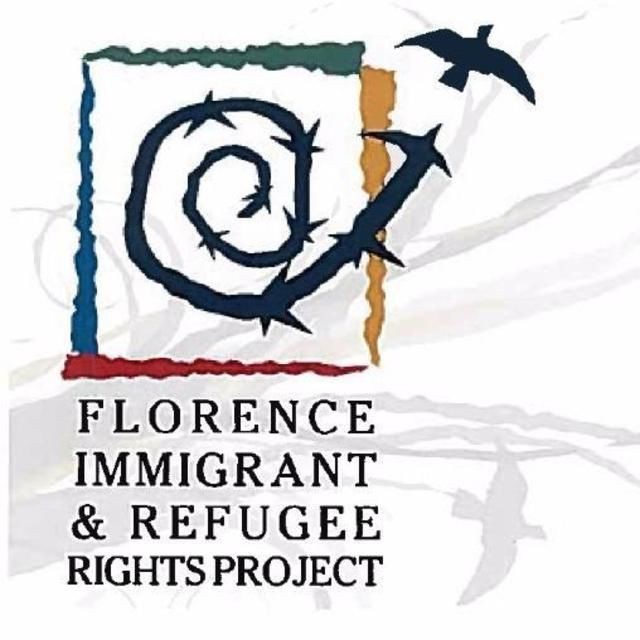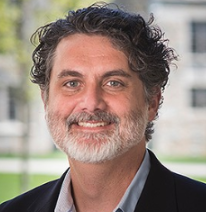November 2018 Newsletter
Protecting Migrant Children 7.2
Westy Egmont, Director IIL
BCSSW Professor Thomas Crea writes: “One of the most difficult political and humanitarian issues we face today in the United States is the large number of children migrating to the southern border, with and without their parents and caregivers. Service providers are in desperate need of information that can help them respond to the unique needs of these children and families once they arrive in the U.S.”
Whether we are educators, religious leaders, social workers, or activists, the burden created by Federal policies which apprehend and separate families; hold minors in detention; or within the U.S. Unaccompanied Alien Children program, lifts vulnerable youth to a national priority. ‘Protection first’ is an appropriate policy and certainly the humane and rights-based obligation of nations and actors who are likely to encounter and serve these youths.
Clinical needs are hierarchical. Social workers are hard-pressed to access youth detained after arrival. Under contract with LIRS and CCUSA, the Office of Refugee Resettlement has cared for 175,000 children, many placed in foster care, where the recruitment training and oversight are critical functions. The individual needs of children often fall to host families, educators and community agencies making trauma-informed care essential. A recent study by Jami, Underwood and Ranweiller points to the power of hope in sustaining resilience of migrating youth. In Sweden, a study notes patterns of hibernation that have been diagnosed as resignation syndrome. Such life-threatening consequences are not uncommon, even while the resilience factor of children is affirmed. The noted research this month includes hard evidence of the damage done by current immigration practices such as PTSD, internalized social withdrawal, distraction, consequences to general health and the focus necessary for education.
Further research by those in the social sciences and education is encouraged. While advocates do well to focus on the human consequences in addition to the politics creating these conditions, clinical social workers are increasingly in need of specialized training to more readily identify status and migration history related to mental health needs and to know promising practices for work with children, parents, and providers. David Murphy provides a good introduction to interventions though there are many other aspects to this work that warrant evidence-based study and dissemination. BCSSW’s Research Program on Children and Adversity studies these global needs and explores effective interventions with settled refugee youth in the U.S.
The IIL commends the academics and providers of the Center on Child Welfare and Immigration who contribute a steady focus of relevant and timely information. As a grandfather of seven, my peers may find a particular interest in the consequences of family separation for grandparents in Love Without Borders.
The New York Times covers the human anguish of children left behind. The harsh reality of the many more than half a million children who within just two years have had a family member deported or detained means that the demand for care is immediate. The numbers will continue to rise since this is a time when the policies of separation are being advocated by the White House and other federal officials. Given that over 6 million citizen children have one undocumented family member in their household, this group alone, amidst many migrant biographies, raises this issue to urgency.
All migrants experience loss, grief and the stress of acclimation to the new environment. The professional community and its funding allies have a mandate to address the welfare of children who are the most vulnerable among the vulnerable and who will suffer for a lifetime if their needs go unaddressed.
Research
Gubernskaya, Z. & Dreby, J. (2017). US immigration policy and the case for family unity. Journal on Migration and Human Security 5(2), 417-430.
Recent immigration proposals heavily restrict family members from joining their relatives in the United States. Based on current evidence, the effect of these policy changes would jeopardize immigrants’ ability to integrate into the United States, as family supports are critical during this time of transition. Namely, since federal support for immigrant integration and welfare policies is weak, immigrants rely on family networks for employment, housing, transportation, informal financial services, schooling, childcare, and eldercare. Without family supports, immigrants’ ability to integrate and contribute to US society is comprised. Since studies have shown that immigration has an overall positive impact on the US economy, family-based immigration policies must be supported to promote immigrant integration, especially if federal supports continue to be weak. To encourage family unity, this study proposes reducing wait times for family reunification of lawful permanent residents, allowing prospective family-based migrants to visit their relatives in the US, and providing relief from deportation and a path to legalization for parents and spouses of US citizens. Based on this study, social workers should bear in mind the critical importance for family unity for immigrant clients. Given this, social workers must advocate for reunification and be cognizant of the unique barriers immigrants face during integration in the absence of needed family support.
Miller, A., Hess, J., Bybee, D., Goodkind, J., Mcleigh, J. D., & Spaulding, W. (2018). Understanding the mental health consequences of family separation for refugees: Implications for policy and practice. American Journal of Orthopsychiatry, 88(1), 26-37.
Leaving one’s home country due to distress is a process that is often traumatic alone. This study examines how the ensuing separation from family adds insult to injury and exacerbates immigrants’ mental health. Namely, this study found that regardless of geocultural region, nation of origin, or nation to which immigrants migrate, family separation causes serious mental distress. This mental distress appeared in fear for family still in harm’s way, a feeling of helplessness, cultural disruption, and also contributed to mixed emotions around resettlement. In this study, family separation was also strongly correlated with refugees experiencing depression/anxiety symptoms, posttraumatic stress disorder (PTSD) symptoms, and disrupted overall psychological quality of life. Furthermore, refugees’ emotional distress compromised their ability to integrate into their host countries. Based on these findings, social workers should bear in mind the emotional distress caused from family separation. Despite succeeding in immigrating to the United States, immigrants are often conflicted about their choices. Moreover, these findings also highlight the imperative for social workers to advocate for family reunification.
Evans, K., Diebold, K., & Calvo, R. (2018). A call to action: Re-imagining social work practice with unaccompanied minors. Advances in Social Work, (18)3, 788-807.
Since the early 2000s, the number of unaccompanied minor (UAM) immigrants from Central American countries has dramatically increased. Reasons for the influx of migrants from this region are increased violent conflict, economic hardships, and persecution in their countries of origin. To make matters worse, migrants’ journeys to the United States frequently include traumatic experiences such as abuse, violence, abandonment, and encounters with smugglers. Despite the increased number of these migrants, federal-level social services for UAMs such as shelter, post-release services, and long-term foster care are currently under siege. For this reason, many UAMs end up working with mainstream social workers who are not necessarily trained in working with this population. Because of this, all social workers should have some familiarity with the experiences and needs of this population, as they may find themselves unexpectedly working with them. More wide-spread knowledge of this population by social workers will help improve UAMs’ ability to cope with their traumatic experiences and increase their ability to integrate into the United States.
Resources on Family Separation
Spotlights
Related Events
“You are Welcome to Learn Here: Effective Education for Immigrant Youth”
Boston: December 5, 2018 • 6:00 PM–8:30 PM
$75–$100
“Know Your Rights: Laws & Policies Affecting Immigrant Youth”
Boston: December 7, 2018
9:00 AM–11:00 AM • Free
“Update on Family Separation Law with the ACLU”
San Diego: December 11, 2018 • 12:00 PM–1:00 PM
$25
“The Last Dream: Stories Created and Performed by the Children of TPS”
Boston: December 14, 2018 • 7:00 PM–8:30 PM
Free
“Social Work Practice with Immigrant Families”
New York: December 15, 2018 • 9:00 AM–5:00 PM
$200–$250
“2019 Immigration Symposium: Fighting to Keep Families Together”
San Antonio: February 22, 2019 • 8:30 AM–4:30 PM
$20–$100



